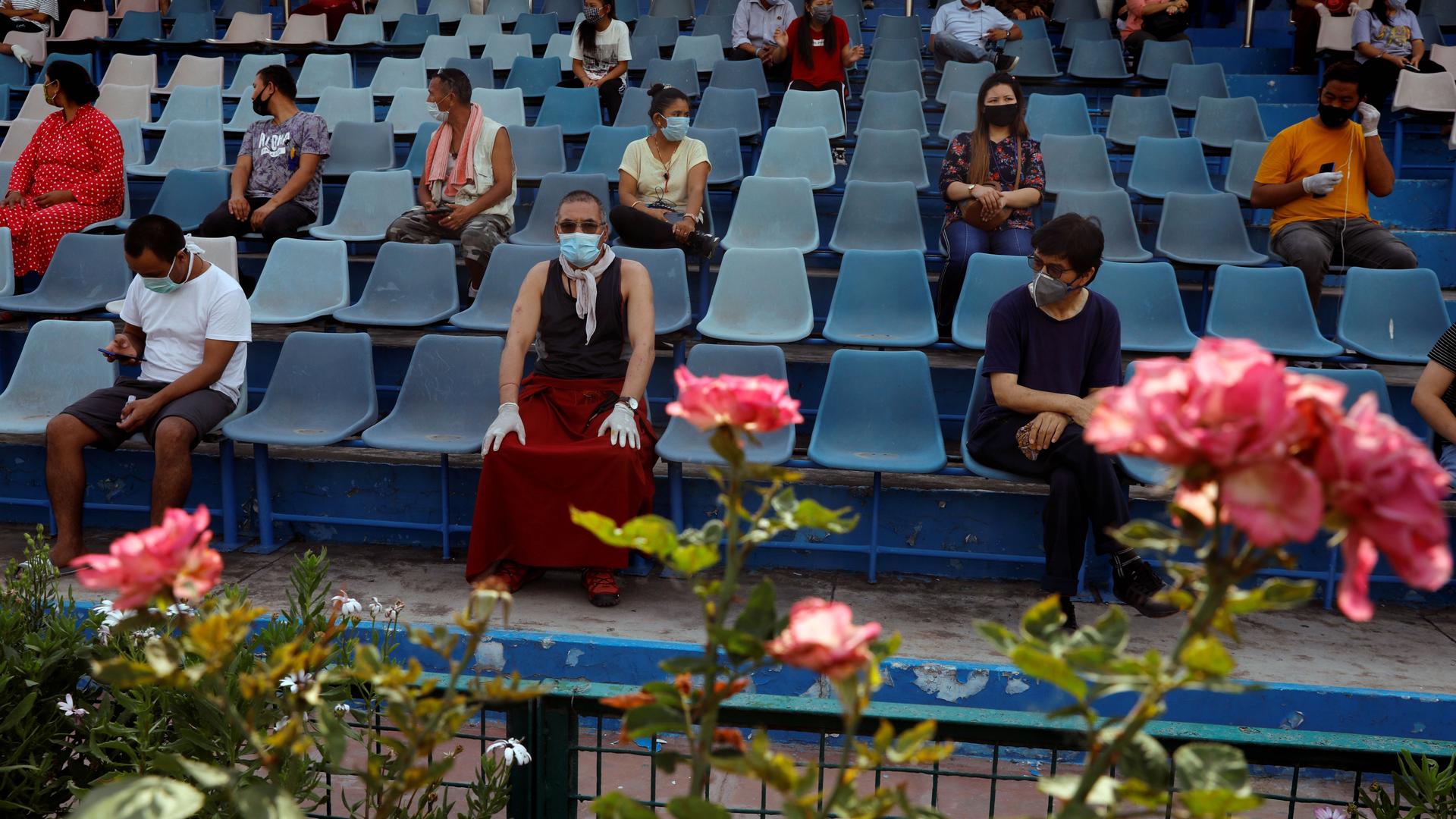When India’s lockdown began six weeks ago, millions of migrant workers lost construction and factory jobs in big cities.
Many tried to walk back to their villages when public transportation shut down, but police sealed the borders. Last week, 16 migrants who were sleeping on train tracks were run over.
“It’s difficult to find something to eat or a place to sleep anywhere,” one of the stranded workers, Mohamad Jalal, said in Hindi in a BBC interview. “They tell us to stay in one place. But can we stay hungry?”
As the crisis grew, some in Mumbai took action, including advertising consultant Mazher Ramzanali, whose group of about 50 volunteers partnered with high-end restaurants to deliver simple vegetarian meals to 80,000 people every day.
Related: Women leaders eschew ‘macho-man’ politics in COVID-19 response
“If somebody told me — and I was not involved — I would not believe it was possible to do it — just citizens coming together and figuring it out. … And it was amazing. I feel so gratified.”
Citizens came together to help India’s 1.3 billion people during the lockdown, said Vijay Chauthaiwale, who directs the Foreign Affairs Department of India’s ruling Bharatiya Janata Party. There was unprecedented cooperation between India’s federal government and its states, he said, and political parties put aside their divisions.
“In this hour of crisis, all these political parties have shown enormous consensus.”
“In this hour of crisis, all these political parties have shown enormous consensus,” Chauthaiwale said.
That consensus among politicians has had an impact, he said — it helped keep India’s number of cases of the coronavirus low at under 70,000. Skeptics believe that number is low because there hasn’t been enough testing, but Chauthaiwale dismisses those concerns.
“India is doing adequate testing, and it is comparable to other countries like South Korea or Germany where the disease has been managed very well,” he said.
Now, with India’s unemployment at a record high of 27%, the country is gradually lifting its lockdown. The government is arranging special trains to take migrants to their home villages. Officials are also in the early stages of bringing back 200,000 Indian citizens who were stranded abroad when the country locked down.
Related: With test kits so scarce, doctors in Yemen are flying blind
“This will be the most complex and the biggest rescue operation in the world any country has ever taken,” Chauthaiwale said.
The government is taking a phased approach to the lockdown, easing restrictions only on areas that haven’t seen infections for a month. That’s despite the fact that India recently saw a spike in cases of the coronavirus, and projections show they still have not peaked. State hospitals are already overwhelmed and don’t have enough ventilators.
At the same time, critics say religious tensions that were rising before the pandemic have continued, with the help of the country’s largest newspapers and television networks.
“The mainstream media are continuously spreading fake [news] against Muslims,” said Sanjar Alam, an engineer and activist in Delhi. He said the media have blamed Muslims for the spread of the virus.
“This Islamophobic propaganda by media and some political leaders has serious consequences on the ground, they are the main reason, the main cause of Hindu-Muslim violence in India.”
“This Islamophobic propaganda by media and some political leaders has serious consequences on the ground, they are the main reason, the main cause of Hindu-Muslim violence in India.”
Before the coronavirus hit, violence against Muslims was rising in India. Alam worries that attacks on Muslims will go up again once the lockdown is lifted. And he said India’s Hindu nationalist government may let it happen, as they have before. Yet, Alam feels he has to be optimistic.
Related: Researchers in Senegal are developing a coronavirus test kit to be used across Africa
“We are going through a tough time, but we have hopes here,” he said.
He said it’s a relatively small group of people who are responsible for the increase in religious tension. As the lockdown is lifted, Alam believes most Indians want their country to return to being a place where people of all faiths can prosper.
